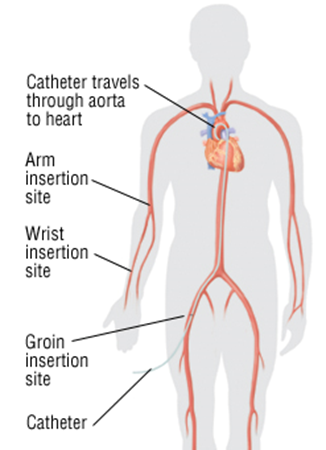
Cardiac catheterization is a procedure in which a heart specialist inserts a small tube (called a catheter) through a large blood vessel in the arm or leg, and then passes the tube into the heart. Once inside the heart, doctors use the catheter to evaluate how the heart is working by measuring pressure and oxygen levels within the heart’s chambers. Through the catheter, doctors inject a special dye that provides an X-ray image of the heart’s internal structure and blood flow patterns.
The dye may also be injected into the three main coronary arteries to look for narrowing and blockages in the blood vessels that supply the heart. This is called angiography and can confirm whether narrowing in the arteries leading to the heart is a cause of your heart failure.
Although the catheterization itself usually takes an hour or less, you will stay in the hospital for several hours to make sure there are no complications from the procedure. Coronary angiography should not be painful and is very safe when performed by experienced physicians.


